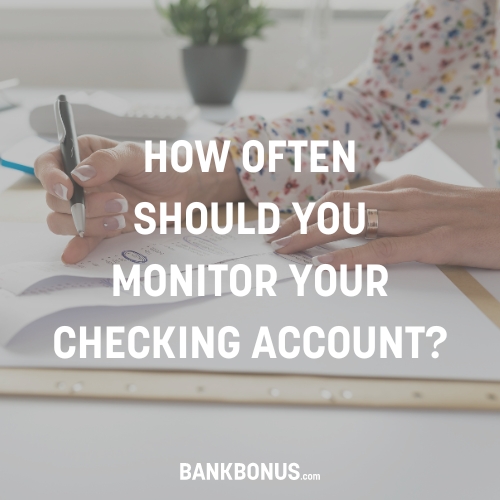A certificate of deposit (CD) can be valuable for Americans looking to grow their personal finance proficiency. CDs are one of the safest investments because the government insures them.
FDIC insurance, an initiative by the Federal Deposit Insurance Corporation, safeguards your bank deposits, including CDs, against potential loss if your bank fails. The US government backs this insurance protection.
Here’s a closer look at the details.
Are Certificates of Deposit (CDs) FDIC-Insured?
The short answer is yes, CDs are FDIC-insured. Like other bank accounts, CDs are protected by federal deposit insurance when held at member financial institutions.
The Federal Deposit Insurance Corporation (FDIC) is the primary agency insuring banks, while the National Credit Union Administration (NCUA) insures credit unions.
NCUA and FDIC insurance coverage guarantees that if a member bank or credit union fails, you will receive your money back, up to $250,000, per depositor, per institution, by the full faith and credit of the U.S. government.
It’s important to note that you don’t need to apply for or pay for FDIC insurance separately. The issuing bank pays for this insurance on behalf of its customers.
Look for the acronym FDIC or NCUA at the bottom of their website to ensure that your chosen bank or credit union is federally insured. Alternatively, you can verify their status using the FDIC’s BankFind tool or the NCUA’s Credit Union Locator widget.
If a bank fails, FDIC insurance provides peace of mind to CD holders. The FDIC takes steps to protect customers and their deposits.
For example, during a bank acquisition, like JPMorgan Chase acquiring First Republic Bank, the FDIC secures the transaction and ensures that all customers’ deposits are protected.
How FDIC Insurance Works
The Federal Deposit Insurance Corporation (FDIC) was established in 1933 during the Great Depression to safeguard deposits in banks and savings associations up to certain limits. The government prioritized FDIC insurance coverage to restore Americans’ faith in the banking system.
FDIC deposit insurance covers various deposit products, including checking accounts, savings accounts, money market accounts (MMAs), and CDs. Additionally, cashier’s checks, money orders, and other official items issued by a bank are covered.
On the other hand, FDIC insurance doesn’t cover non-deposit products such as investments, life insurance, or annuities.
What Is the FDIC Insurance Limit for CDs?
The FDIC provides up to $250,000 in coverage per depositor for each FDIC-insured bank and ownership category. If you have multiple CDs at the same bank, the total coverage for all your CDs combined would be $250,000.
It’s crucial to note that the FDIC coverage limit applies to the total amount of deposits you have at a particular bank, including checking and savings accounts.
Can Depositors Apply for FDIC Deposit Insurance?
FDIC deposit insurance provides depositors peace of mind by ensuring the safety and security of their funds. Obtaining FDIC coverage is straightforward, as depositors don’t need to purchase or apply for FDIC insurance.
As a depositor, you don’t have to worry about taking any additional steps to secure FDIC insurance for your deposit accounts. Once you open an account at an FDIC-insured bank, FDIC deposit insurance automatically covers your funds.
Are CDs With an Online Bank FDIC-insured?
Yes, CDs offered by online banks are FDIC-insured as long as the online bank itself is FDIC-insured.
You can typically find information about the bank’s FDIC insurance on its website. If you need help finding the information, contacting a bank representative to confirm its insurance status is best.
The FDIC coverage limits for online banks are the same as those for traditional brick-and-mortar banks.
Are Brokered CDs FDIC-insured?
Brokered CDs, which you can purchase through brokerage firms and independent salespeople, are FDIC-insured if you buy them from an FDIC-insured bank.
It’s important to verify the bank’s FDIC insurance coverage before you purchase a brokered CD. CDs purchased from banks without FDIC insurance may not be covered.
What Happens If a Bank Fails?
In the unfortunate event of a bank failure, the FDIC plays a crucial role in protecting depositors’ funds and ensuring a smooth transition.
When a bank fails, the FDIC’s main responsibility is to protect insured depositors by transferring their accounts to a solvent bank or directly reimbursing depositors for their insured balances.
The former method, a Purchase and Assumption Transaction, involves a healthy bank assuming the failed bank’s insured deposits. In this scenario, insured depositors become customers of the acquiring bank and maintain access to their funds.
If an acquiring bank isn’t available, the FDIC initiates a Deposit Payoff. Through this process, the FDIC pays depositors the insured amount of their account balance via a check. Typically, the FDIC will make these payments within a few days of the bank’s closure.
As the receiver of the failed bank, the FDIC is responsible for resolving the bank’s affairs. Resolution involves managing the failed bank’s assets and liabilities, including loans and other financial obligations. The FDIC may also sell some of the failed bank’s assets to recoup some losses.
During this process, the FDIC works diligently to minimize disruptions and ensure a seamless transition for depositors.
In some instances, the FDIC may require additional documentation to determine the insurance coverage for your specific accounts, such as accounts in a formal trust agreement. The FDIC may request trust documents or a declaration of testamentary trust statement to ascertain the appropriate insurance coverage.
Tips for Opening a CD Account
Here are some parting pointers for using CDs:
- Consider your goals: Take an honest inventory of your financial goals and how a CD account fits into your overall savings plan.
- Understand CD terms: Make sure you fully understand the terms of the CD account, including term length, the interest rate, and any fees or penalties that may apply.
- Evaluate CD rates: Shop around for the best CD rates available. Compare the annual percentage yield (APY) and interest rates different banks offer to ensure you get the most competitive rate for your CD account.
- Decide on a CD term: Determine the length of the CD term that best suits your needs. Consider short-term CDs for flexibility or long-term CDs for higher interest rates.
- Consider CD laddering: If you have substantial money to invest, consider CD laddering. It involves opening multiple CDs with different maturity dates to take advantage of higher rates without sacrificing liquidity.
- Monitor Your CD: Once your CD account is open, monitor it regularly to track the interest earnings and ensure no unexpected fees or issues.
- Consider CD renewal options: As your CD account matures, evaluate the bank’s renewal options. Decide whether to renew the CD or explore new accounts and other investment opportunities.
Opening a CD account can be a great way to grow your savings and earn interest. By following these tips, you can ensure a smooth and successful CD account opening process.
Choose FDIC-Insured Products
It’s important to understand the level of risk and protection. FDIC insurance allows you and countless other Americans to rest assured that their investment in a CD is covered in the event of bank failure, merger, or acquisition.
Knowing there’s a safety net empowers investors to make informed decisions and confidently pursue financial goals aligned with their risk tolerance.
We recommend CDs if you want a secure and reliable way to grow your savings backed by FDIC insurance.
When you choose an FDIC-insured bank and its products, you can feel confident that if your bank fails, the FDIC has your back up to $250,000 per institution.





Comments are closed.
Comments are closed here.